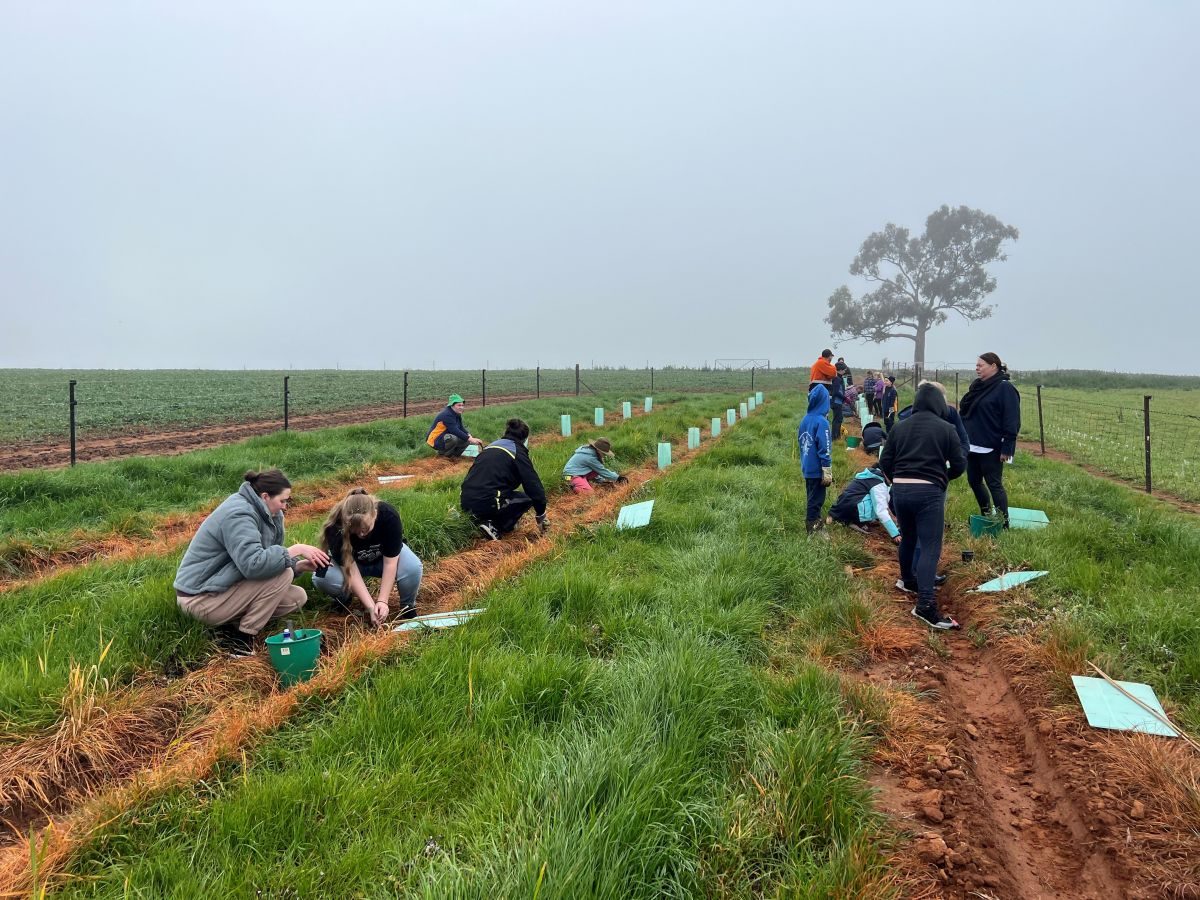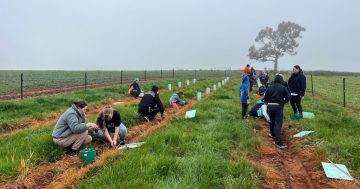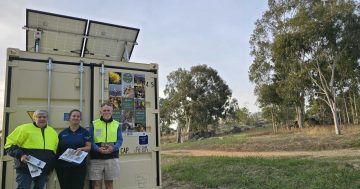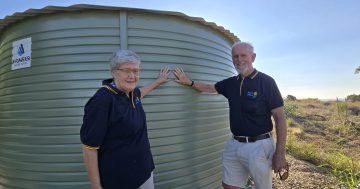
More than 145 volunteers braved the cold, foggy weather to plant 1000 seedlings as part of National Tree Day. Photo: Wagga Wagga City Council.
National Tree Day saw many of Wagga’s green thumbs brave the elements on a cold and wet winter’s day to plant a record number of seedlings at Charles Sturt University on Sunday (July 30).
The community planting event run by Wagga Wagga City Council saw more than 140 volunteers plant well over 1000 trees at the CSU farming site.
Environmental officer Samantha Pascall said she was overjoyed with the number of people who volunteered despite the dreary conditions.
READ ALSO: Junee Pastured Eggs thriving on support for cracking product of biodiversity
“We have been overwhelmed with the response from the volunteers; we had more than 120 people register for the event, and even more who showed up on the day,” Ms Pascall said.
Ms Pascall said this year’s event was far and away the most successful in terms of the number of volunteers who attended.
The record number led to a record completion time as well with the final tree seedling planted just prior to 11:30 am, an hour and a half after planting had begun.
“The planting saw an outstanding 145 volunteers, a combination of various members of the community – kids, adults, returners, and first-timers – all who chose to give their Sunday morning to helping our local biodiversity,” Ms Pascall said.
Several volunteers from Urban Landcare, South Wagga Wagga Rotary Club’s Rocky Hill Regeneration project, select church groups, and the Girl Scouts all contributed to the planting, supporting volunteers, and a barbecue lunch afterward.
The seedlings chosen for this year’s event were selected to assist the threatened superb parrot.
“CSU Farm kindly offered the planting site, which is in a superb parrot flight path. Species that are planted today were chosen to provide feed and shelter habitat for the threatened parrot,” Ms Pascall said.
“The most significant threats to the superb parrot include destruction of breeding and foraging habitat through widespread clearing, land degradation and fragmentation, disturbance around breeding sites and competition for nest hollows.”
The seedlings chosen to support the parrot included white box and yellow box, Deane’s wattle, gold dust wattle, and kangaroo thorn.
“Unfortunately, a large amount of our natural areas has been cleared. It is very important to provide a safe passage for our native wildlife to move throughout our LGA to gain access to much-needed resources including food, shelter, and water,” Ms Pascall said.










